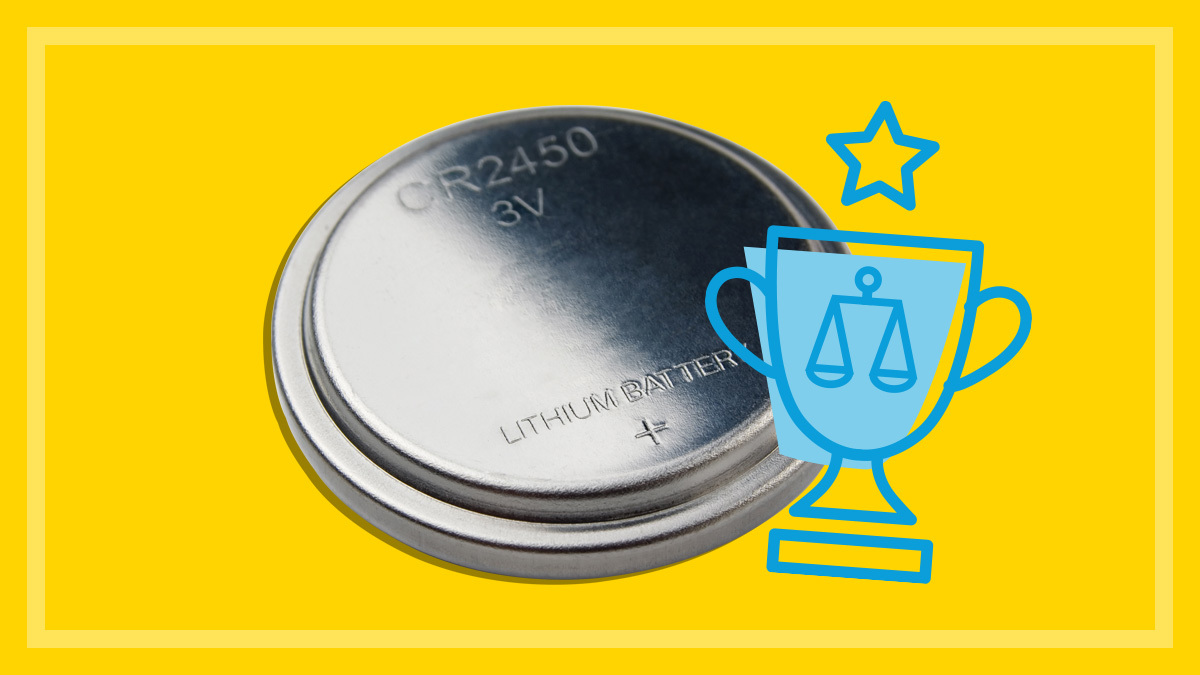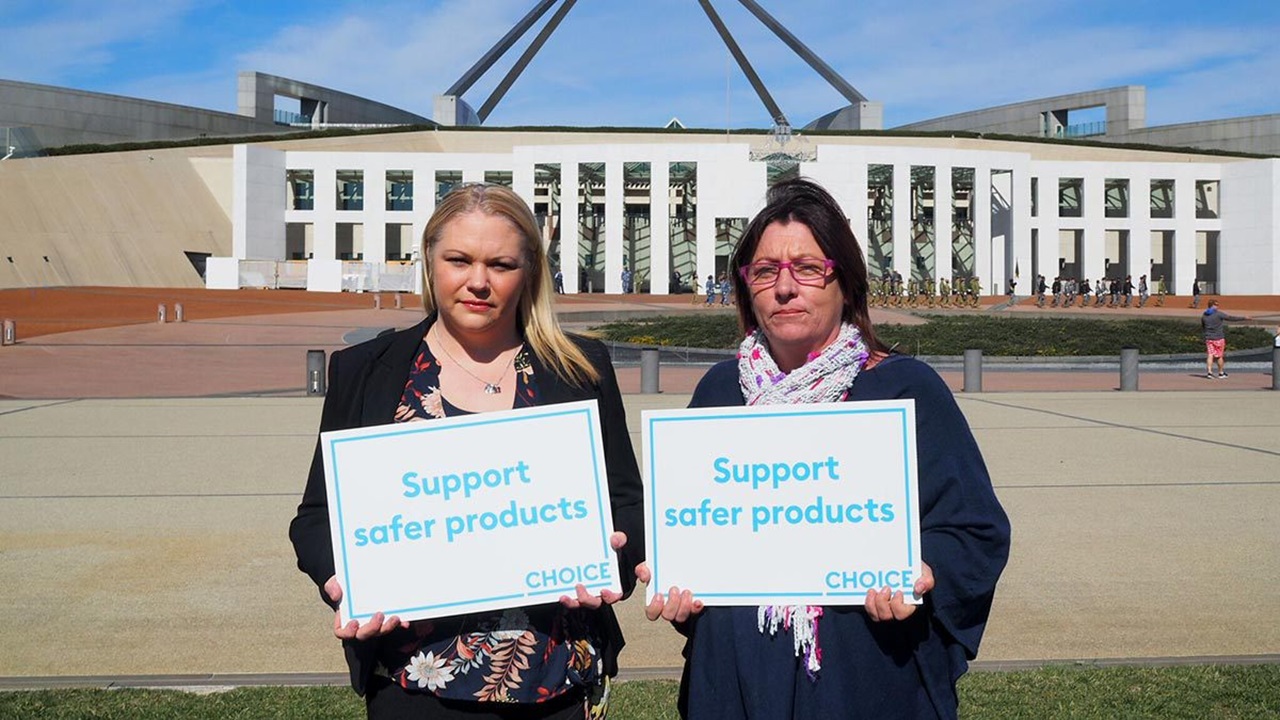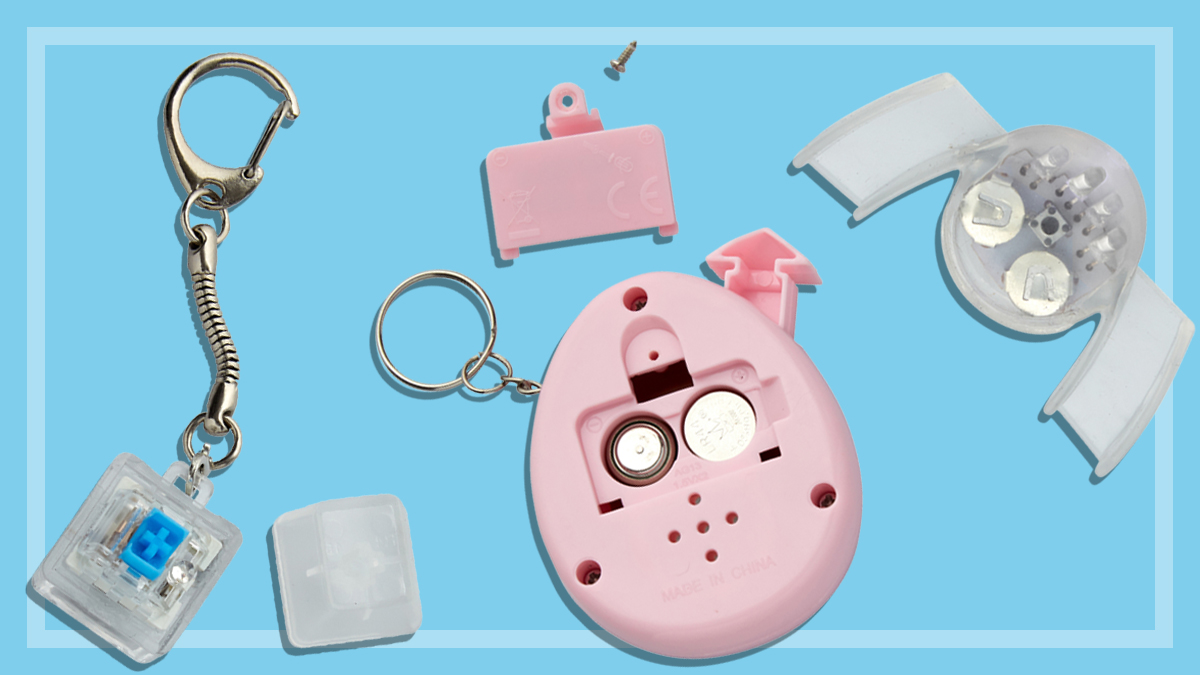Get our independent lab tests, expert reviews and honest advice.
How CHOICE helped win the fight to improve button battery safety

In December 2020, after years of campaigning by CHOICE, parents and other passionate advocates, Australia became the first country in the world to introduce new mandatory safety and information standards for all products containing button batteries.
This is a huge win for parents and families. It will reduce the risk of children getting their hands on button batteries in common household objects, which can cause serious injury and even death if they swallow them.
Here, we take a look at the role CHOICE played in helping push through this potentially life-saving reform.

Button battery safety in the spotlight
In the wake of the tragic deaths of Summer Steer and Isabella Rees from button battery related injuries, CHOICE partnered with Kidsafe QLD and The Parenthood in 2016 to launch a petition calling on the government to introduce stricter safety standards for all products containing button batteries.
“Button batteries are harmful, commonplace items found in kitchen scales, thermometers, novelty toys and accessories, and can cause serious and irreversible injury or death when swallowed by children,” says CHOICE product safety campaigner Amy Pereira.
Button batteries are harmful, commonplace items… and can cause serious and irreversible injury or death when swallowed by children
CHOICE product safety campaigner Amy Pereira
At the time, only toys designed for children under three years old were legally required to have secure battery compartments. But many other everyday household items also contained unsecured button batteries – and these had no mandatory safety standards.
We also recommended a mandatory button battery safety standard in our submission to the review of the Australian Consumer Law. We argued that this standard should require goods to have a secure battery compartment, be sold in child-resistant packaging with button batteries secured within the packaging, and be accompanied by clear safety warnings.
How much damage can a button battery do?
A step in the right direction
We celebrated a partial win later that year when the ACCC launched a new voluntary industry code that urged retailers to adopt safety measures that would reduce the risk of children ingesting button batteries.
This was a welcome first step, but it relied on companies complying voluntarily. Given that an estimated 20 children a week were arriving at emergency departments across Australia, suspected of having swallowed or inserted a button battery, we knew more had to be done.
CHOICE testing reveals safety failures
In 2019 we conducted a button battery safety test that checked common household items – including ear thermometers, kitchen and bathroom scales, and remote controls – against the voluntary standard.
Of the 17 items we looked at, 10 had unsecured batteries that could be easily accessed and swallowed by children.
These results made it clear to us that many manufacturers were ignoring the voluntary standard.
“Self-regulation is failing, and it’s putting Australian children at risk of serious harm,” a CHOICE spokesperson said at the time.

Parents fight for reform
Realising that Australians couldn’t rely on businesses to do the right thing voluntarily, we continued to raise awareness of the dangers of button batteries beyond highlighting the test results and statistics.
We joined forces with parents Andrea Shoesmith and Allison Rees in their fight for reform. They had experienced first hand the devastating effects button battery ingestion can have on families.
Andrea’s daughter Summer Steer died in 2013, weeks after the four-year-old swallowed a button battery. Doctors wrongly diagnosed her as having Giardia and a bloody nose.
Allison’s 14-month-old daughter, Isabella, swallowed a button battery in 2015. She died from the damage it caused when it lodged in her oesophagus.

Turning tragedy into action
After their life-changing losses, Andrea and Allison turned their pain into action. They’ve been calling on the government to change the law in the hope that no other parent should have to experience the suffering and heartache they have.
“It’s too late for Bella, [but] it’s not too late for everyone else and I want to do all I can to protect the kids of Australia,” said Allison.
In September 2019 Andrea and Allison joined CHOICE product safety campaigners in Canberra, sharing their story with parliamentarians and demanding action on hundreds of unsafe products being sold in Australia every day, such as those containing button batteries.
We need stronger laws to curb the risks associated with unsecured button batteries
CHOICE CEO Alan Kirkland
“We need stronger laws to curb the risks associated with unsecured button batteries and other products that we already know are unsafe but are still being sold,” said CHOICE CEO Alan Kirkland.
Together with our partners, we continued campaigning behind the scenes, writing submissions to the ACCC and Treasury on the dangers of button batteries and why Australia needed a general safety provision.
Australian Story – Sisters in Arms
Tragedy strikes again
But change couldn’t come fast enough for another family. In October 2020, news broke that three-year-old Brittney Conway had become the third child to die in Australia since 2013 after swallowing a button battery.
It was devastating news, and we continued to call for stronger protections.
“We know there is a solution that will keep children safer – a mandatory standard for button batteries which will make it harder for these deadly batteries to slip out of common household items and into the hands of our little ones,” said CHOICE editorial director Margaret Rafferty.
The day after the news broke, flashing wristbands containing two easily removable lithium button batteries were handed out to the 30,000 spectators at the AFL Grand Final. They were recalled days later, but no one knows just how many are still in households across Australia.
Government announces long-awaited reform
Then, in December 2020 – seven years after Summer Steer became the first reported case of a child dying after swallowing a button battery – the Australian government introduced new mandatory safety and information standards for all products containing button batteries.
Manufacturers, suppliers and retailers were given 18 months (so by the middle of next year) to comply with the standards. They require:
- secure battery compartments to stop children from accessing the batteries
- compliance testing to demonstrate the batteries are secure
- warnings and emergency advice on packaging
- child-resistant packaging for higher risk batteries.
This was an amazing win for parents and families – and the result of years of passionate and tireless advocacy by CHOICE, the ACCC, health professionals, industry, government, consumer advocates and of course parents such as Allison Rees and Andrea Shoesmith.
The new rules will help prevent further deaths and injury to young children in Australia
Amy Pereira
“Today marks a momentous day for parents and families across Australia,” said CHOICE product safety campaigner Amy Pereira after the announcement.
“CHOICE has been calling for a mandatory standard for button batteries for a number of years and is pleased that the new rules will help prevent further deaths and injury to young children in Australia.”
We can go even further to ensure products are safe
It shouldn’t have taken years to introduce voluntary – let alone mandatory – safety standards on products containing button batteries.
Australians should be able to trust that the products we buy are safe and won’t harm us or our families. The introduction of a general safety provision – which already exists in countries such as the UK – would make it illegal for Australian businesses to sell unsafe products.
“Weak product safety laws are harmful,” says Pereira. “In addition to mandatory standards, a general product safety provision in the consumer law will help ensure that products at shops and online are safe for all consumers.”





